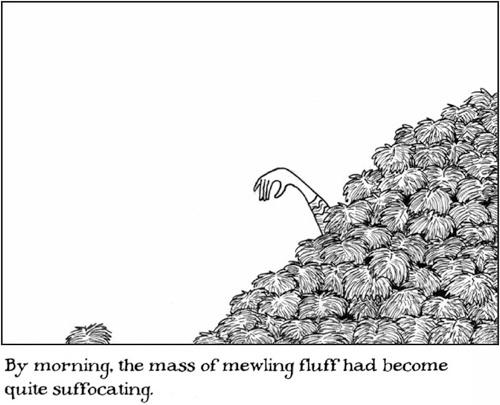
One of the defining features of social media, if not the defining feature, is its participatory nature. Anyone, everyone, is a content producer. Anyone, everyone, is a critic. And, for the most part, everyone’s voice registers at the same volume. Your take on the new Michael Jackson movie, and my take, and the take of the fifteen-year-old boy down the street are given equal weight. True, there are some sites, like The New York Times and Amazon that let readers rate or recommend other people’s musings, rants and insights, but even so, all the comments are put “out there” with little or no intercession. This works really well for consumer products, where the average user, whose experience is actual and authentic, is typically a more reliable guide than that of professional testers, though manufacturers have figured out how to game the system by mobilizing armies of average-joe posters to shill their products. Still, if 328 people have something to say about a piece of software or a robotic vacuum cleaner you’re interested in, you are going to get a very good sense whether these products will meet your needs.
You’d think that this kind of mass pile-on would work well for creative enterprises as well. The fallacy of the wisdom of crowds, though, is its jump from the general to the particular. True, the 2,000 or so people who have rated the book Tuesdays With Morrie by Mitch Albom on amazon.com have given it a nearly perfect five, but what does that have to do with me? Even if popular is the same thing as good (which I don’t for a moment believe), am I supposed to assume that I’ll like it because everyone else does? Is there an algorithm for taste? For individual discernment? In September, Netflix, the internet-based movie company, awarded a million dollar prize to a group of software engineers who came up with a new, apparently more accurate, algorithm to tell viewers which films they’d like. The idea is that if you’ve given a particular movie a high rating by awarding it a lot of stars, the algorithm will pinpoint other movies that will speak to the individual you. That’s fine as far as it goes, but it’s really looking at the movies, which are static, not you, who are variable and subject to moods and whims.
Now that we all have a say, and what we have to say is tallied up and presented as if we were voting, rather than expressing an opinion, cultural artifacts like books and music have become products the way bicycles and dishwashers are. The internet didn’t make this true, it just made it more obvious and more true: it’s now about what sells and what doesn’t. What sells must be good, and what doesn’t must not be—isn’t that how the market works? What happens now to those books or paintings or symphonies that the crowd ignores or dismisses or (sometimes) ridicules, like it did Emily Dickinson and Gustav Mahler and Paul Gauguin.
Political philosophers have long debated the virtues of egalitarianism, of the classless society, of putting the means (and rewards) of production into the hands of the producers. Unintentionally, this is precisely what this current incarnation of the web does. Call it a bloodless revolution or, at least, an interesting, and paradoxically real-world, experiment: political theory is getting played out on the Internet in real time. We’ve all been co-opted, not in a bad way, simply by logging on. So now it’s possible to see how much we like classlessness and equality, and how it’s working for us.


